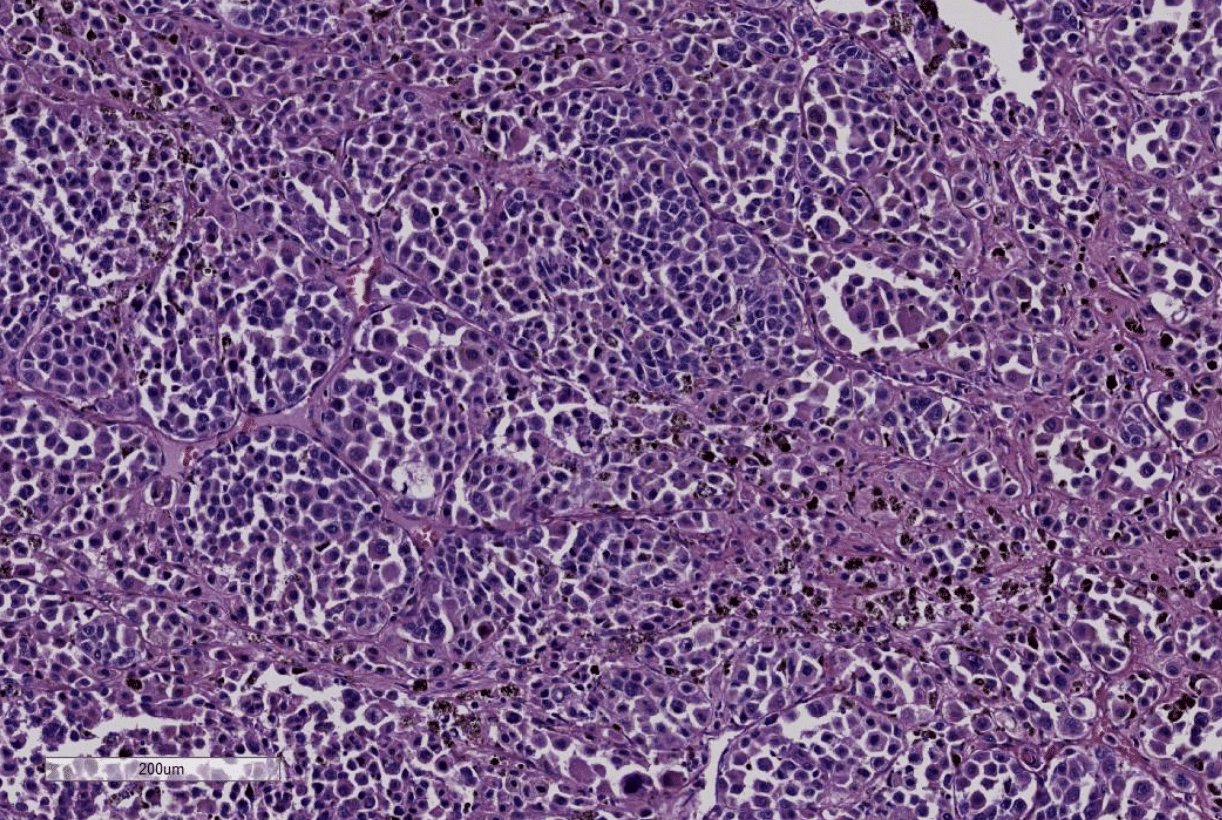
Melanoma and Skin Cancer Awareness Month takes place in May. Its purpose is to raise awareness about the dangers of sun exposure, and the importance of the early detection and prevention of skin cancer.
Skin cancer is the most common type of cancer in the United States, Over 9,000 people are diagnosed each day, and one in five Americans will develop skin cancer in their lifetime. The most common types of skin cancer are basal cell carcinoma, squamous cell carcinoma, and melanoma.
Cutaneous Squamous Cell Carcinoma (cSCC)
Cutaneous squamous cell carcinoma (cSCC) is a prevalent form of skin cancer, accounting for about 20 percent of all non-melanoma skin cancers. Although most cases can be treated with a simple excision procedure, approximately 5 percent of cases metastasize, leading to a 5-year survival rate of only 25-45 percent. Therefore, it is crucial to identify biomarkers correlated with cSCC progression to aid in the early identification of high-risk cSCC and the development of new therapeutic strategies.
New Research On Sun Exposure and Complement Factor H
A recent study (1) investigated the role of complement factor H (CFH) in cSCC development and progression. CFH is a regulatory component of the complement cascade that affects cell-mediated immune responses, and increases in complement proteins are associated with poor outcomes in multiple cancer types.
The study found that sun exposure may increase levels of CFH, suggesting an immunomodulatory role for CFH early in cSCC development. The study also demonstrated increased levels of CFH in cSCC samples compared to adjacent normal tissue, with higher levels in advanced cases. CFH may interfere with proper immune surveillance, creating an immunosuppressive environment and promoting cSCC progression.
Immunohistochemistry (IHC) was used to assess the expression levels of CFH and immune system markers in patient samples. The use of BioChain tissue slides (2) to run IHC protocols provided information on the distribution, localization, and intensity of protein expression. The study's findings provide valuable insights into CFH's role in cSCC development and progression, potentially leading to more effective therapies.
Quick prevention tips can help reduce the risk of skin cancer.
- Avoid sun exposure during peak hours
- Wear protective clothing and hats
- Apply broad-spectrum sunscreen regularly
- Early detection through regular skin checks and seeking medical attention for moles or spots is also crucial.
Related Products
BioChain offers healthy and diseased skin tissue samples as well as protein and DNA/ RNA samples extracted from the skin to support skin cancer research. We also offer NGS-characterized melanoma sections. Please check out the links below or contact us for more information.
Paraffin Tissue Section - Human Skin Tumor: Malignant Melanoma
CancerSeq™ Paraffin Tissue Tumor Slides: Skin Melanoma
Paraffin Tissue Section - Human Skin Tumor: Squamous Cell Carcinoma, Well-Differentiated
References
- Johnson EM, Uppalapati CK, Pascual AS, Estrada SI, Averitte RL, Leyva KJ, Hull EE. Complement Factor H in cSCC: Evidence of a Link Between Sun Exposure and Immunosuppression in Skin Cancer Progression. Front Oncol. 2022 Feb 10;12:819580. doi: 10.3389/fonc.2022.819580. PMID: 35223500; PMCID: PMC8869607.
- The Skin Cancer Foundation. (2023, March 6). Skin Cancer Facts & Statistics - The Skin Cancer Foundation. https://www.skincancer.org/skin-cancer-information/skin-cancer-facts/
Author
Ludmila Moraes, PhD in Biological Sciences
Dr. Moraes received her Ph.D. in Biological Sciences from Federal University of Rio Grande do Sul.
She is a valued scientist on BioChain's R&D team, helping to develop new technologies.

